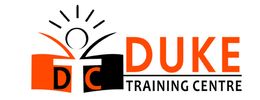- مدة الدورة التدريبية: 6 ساعات
- مواعيد الدورة: استفسار
تفاصيل الدورة
What is Tax?Tax is the means by which governments raise revenue to pay for public services. Government revenues from taxation are generally used to pay for things such public hospitals, schools and universities, defence and other important aspects of daily life.
There are many different types of taxes:
- A direct tax is collected by government from the person on whom it is imposed (, income tax, corporate tax).
- An indirect tax is collected for government by an intermediary ( a retail store) from the person that ultimately pays the tax (, VAT, Sales Tax).
- Value Added Tax (or VAT) is an indirect tax. Occasionally you might also see it referred to as a type of general consumption tax. In a country which has a VAT, it is imposed on most supplies of goods and services that are bought and sold.
- VAT is one of the most common types of consumption tax found around the world. Over 150 countries have implemented VAT (or its equivalent, Goods and Services Tax), including all 29 European Union (EU) members, Canada, New Zealand, Australia, Singapore and Malaysia.
- VAT is charged at each step of the 'supply chain'. Ultimate consumers generally bear the VAT cost while Businesses collect and account for the tax, in a way acting as a tax collector on behalf of the government.
- A business pays the government the tax that it collects from the customers while it may also receive a refund from the government on tax that it has paid to its suppliers. The net result is that tax receipts to government reflect the 'value add' throughout the supply chain. To explain how VAT works we have provided a simple, illustrative example below (based on a VAT rate of 5%)
A sales tax is also a consumption tax, just like VAT. For the general public there may be no observable difference between how the two types of taxes work, but there are some key differences. In many countries, sales taxes are only imposed on transactions involving goods. In addition, sales tax is only imposed on the final sale to the consumer. This contrasts with VAT which is imposed on goods and services and is charged throughout the supply chain, including on the final sale. VAT is also imposed on imports of goods and services so as to ensure that a level playing field is maintained for domestic providers of those same goods and services.
Many countries prefer a VAT over sales taxes for a range of reasons. Importantly, VAT is considered a more sophisticated approach to taxation as it makes businesses serve as tax collectors on behalf of the government and cuts down on misreporting and tax evasion.
Course Outline
Day1
Introduction to TAXES & VAT
Background & Economical Facts
VAT Principles
VAT & GCC
Difference between VAT & Sales Tax
VAT Rates
VAT Terminologies (as defined by Ministry of Finance)
Applicability of VAT
VAT developments
Who & how one can object on VAT
Accounting Entries for VAT
DAY 2
How VAT works
Who is required to register for VAT
Taxable Supplies
Zero Rated Supplies
Exempt Supplies
VAT Groups
VAT related responsibilities for Business
VAT Returns
Bad Debt Treatment
Fully VAT Taxable Business
Exempt Business
Mixed Business
Types of Supplies
Day 3
Compliance
Penalties for non-compliance
VAT Invoice
Conditions for VAT claim on Expenses
VAT on import
Claim & Documentation
Challenges
VAT Records
Industry Focus (Construction, Education, Real Estate etc)
Sector Focus
تحديث بتاريخ 11 September, 2018
نبذة عن معهد Duke Training Centre
Duke Training Centre (DTC) through its integrated learning approach that ensures that new knowledge can be applied to real life situations, Duke Training Centre delivers a full range of technology and business skills training from basic application and desktop productivity tools to complex and IT systems.
As a learning solutions provider for many of the industry's top vendors, such as Microsoft, Oracle Solaris, Cisco, Citrix, PMP, ITIL & CEH, Duke Training Centre is dedicate to offer the latest authorized curriculum delivered by certified instructors to keep you on the cutting edge of technology. Whether you are searching for an answer for the complex training needs of a large, multi-location business, or an individual seeking the skills to excel in a new or expanding career path, Duke Training Centre is your integrated learning solution provider.
Duke’s training solutions in IT, Banking, Finance and Insurance, Knowledge Process Outsourcing (KPO), Business Process Management (BPM), Executive Management Education, Vocational Skills, School Learning Solutions and Communication and Professional Life Skills has impacted Hundreds if learners since its inception in Year 2003. Duke’s expertise in learning content development, training delivery and education process management make it the most preferred training partner, worldwide.
عرض الجميع دورات Duke Training CentreVAT أسئلة ذات صلة
استفسر عن هذه الدورة
يمكنك إضافة المزيد من الدورات التدريبية هنا.
سيتم حفظ القائمة.



